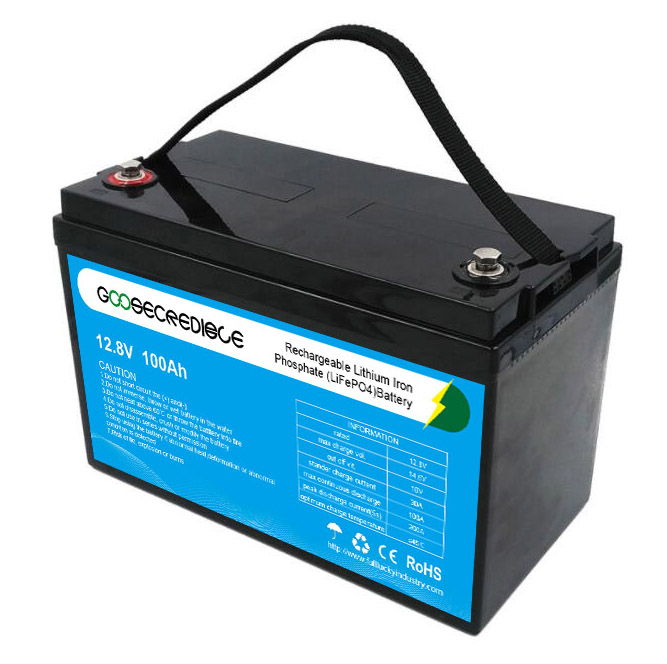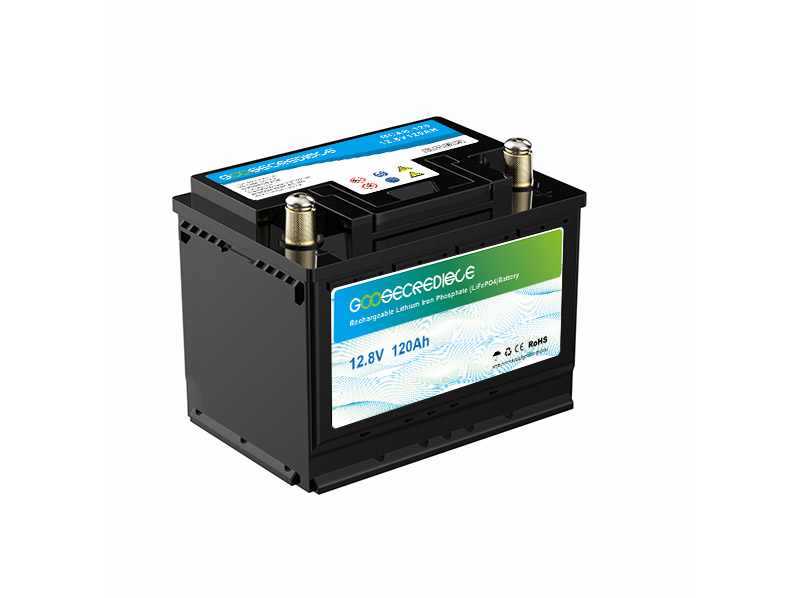Lifespan of a LiFePO4 Battery
LiFePO4 batteries have become increasingly popular in recent years due to their long lifespan and high performance. They are widely used in various applications, including electric vehicles, renewable energy systems, and portable electronics. However, how long can a LiFePO4 battery last? In this article, we will explore the lifespan of a LiFePO4 battery and factors that affect its longevity.
Firstly, it is important to understand what determines the lifespan of a battery. The lifespan of a LiFePO4 battery is primarily determined by the number of charge and discharge cycles it undergoes. Each cycle involves charging the battery to its full capacity and then discharging it until it reaches a certain level of depletion. The more cycles a battery undergoes, the more its capacity and performance degrade, eventually leading to the end of its useful life.
LiFePO4 batteries are known for their high cycle life, which is one of their key advantages over other types of rechargeable batteries. The average lifespan of a LiFePO4 battery is between 2000 and 5000 cycles, depending on the specific manufacturer and model. This means that if a battery undergoes one cycle per day, it can last for up to 5-10 years.
However, the actual lifespan of a LiFePO4 battery can vary widely depending on a variety of factors. One of the most important factors is the depth of discharge (DOD) during each cycle. The deeper the battery is discharged, the more stress is placed on its cells, which can lead to a shorter lifespan. It is generally recommended to keep the DOD of a LiFePO4 battery between 20% and 80% to maximize its lifespan.
Another factor that can affect the lifespan of a LiFePO4 battery is the charging rate. Charging a battery too quickly can cause overheating and damage to its cells, reducing its lifespan. It is important to follow the manufacturer’s recommendations for charging rates and avoid fast charging whenever possible.

Temperature is also an important factor that affects the lifespan of a LiFePO4 battery. High temperatures can cause the battery to degrade quickly, while low temperatures can reduce its performance. It is recommended to store and use LiFePO4 batteries at temperatures between 0°C and 40°C to ensure optimal performance and longevity.
In addition to these factors, the quality and design of the battery also play a role in determining its lifespan. Batteries from reputable manufacturers with high-quality cells and advanced safety features are more likely to have a longer lifespan than cheaper, lower-quality alternatives.
In conclusion, the lifespan of a LiFePO4 battery depends on a variety of factors, including the number of charge and discharge cycles, the depth of discharge, charging rate, temperature, and battery quality. By following the manufacturer’s recommendations and taking proper care of the battery, it is possible to maximize its lifespan and ensure optimal performance for years to come.
-
 In the rapid development of new energy vehicles, large-capacity vehicle start-stop batteries are gradually becoming a key force in promoting the endurance revolution. The emergence of this technology not only solves the bottleneck of new energy vehicles in terms of battery life, but also further improves the convenience and comfort of driving. Start-stop batteries were originally designed to save energy...Read more
In the rapid development of new energy vehicles, large-capacity vehicle start-stop batteries are gradually becoming a key force in promoting the endurance revolution. The emergence of this technology not only solves the bottleneck of new energy vehicles in terms of battery life, but also further improves the convenience and comfort of driving. Start-stop batteries were originally designed to save energy...Read more -
 Lithium Iron Phosphate (LiFePO4) batteries are a type of rechargeable battery that has gained popularity in recent years due to their high energy density, long cycle-life, and low toxicity. They are commonly used in electric vehicles, renewable energy storage systems, and power tools. In this article, we will explore the features and benefits of LiFePO4 batteries and provide a comprehensive...Read more
Lithium Iron Phosphate (LiFePO4) batteries are a type of rechargeable battery that has gained popularity in recent years due to their high energy density, long cycle-life, and low toxicity. They are commonly used in electric vehicles, renewable energy storage systems, and power tools. In this article, we will explore the features and benefits of LiFePO4 batteries and provide a comprehensive...Read more -
 As a key component of electric vehicles, electric vehicle batteries have a significant impact on the performance, range and safety of electric vehicles. The following is a detailed introduction to some of the key technical points and performance characteristics of electric vehicle batteries: Battery Type Lithium-ion battery: The most common type of battery used in electric vehicles. Lithium-ion batteries have...Read more
As a key component of electric vehicles, electric vehicle batteries have a significant impact on the performance, range and safety of electric vehicles. The following is a detailed introduction to some of the key technical points and performance characteristics of electric vehicle batteries: Battery Type Lithium-ion battery: The most common type of battery used in electric vehicles. Lithium-ion batteries have...Read more -
 Electric vehicles (EVs) are rapidly gaining popularity as a sustainable alternative to traditional gasoline-powered cars. One of the most critical components of an EV is its battery. Lithium-ion batteries have emerged as the frontrunner in this field, paving the way for the future of electric mobility. This article explores the significance of lithium batteries and their role in powering the...Read more
Electric vehicles (EVs) are rapidly gaining popularity as a sustainable alternative to traditional gasoline-powered cars. One of the most critical components of an EV is its battery. Lithium-ion batteries have emerged as the frontrunner in this field, paving the way for the future of electric mobility. This article explores the significance of lithium batteries and their role in powering the...Read more -
 The popularity of van life and nomadic living has been on the rise. More and more people are ditching traditional homes in favor of the freedom and adventure that come with living on the road. However, one of the challenges faced by these adventurous nomads is finding a reliable and efficient power solution for their camper vans. This is where...Read more
The popularity of van life and nomadic living has been on the rise. More and more people are ditching traditional homes in favor of the freedom and adventure that come with living on the road. However, one of the challenges faced by these adventurous nomads is finding a reliable and efficient power solution for their camper vans. This is where...Read more -
 In the wave of new energy vehicles and smart mobile devices, chassis battery modules, as one of the core components of these advanced technologies, are gradually showing their indispensable importance. This article will thoroughly explore the key technologies, performance characteristics, market applications, and future development trends of chassis battery modules, with the aim of providing readers with a comprehensive and...Read more
In the wave of new energy vehicles and smart mobile devices, chassis battery modules, as one of the core components of these advanced technologies, are gradually showing their indispensable importance. This article will thoroughly explore the key technologies, performance characteristics, market applications, and future development trends of chassis battery modules, with the aim of providing readers with a comprehensive and...Read more -
 In emergency situations, having a reliable source of power is crucial. Whether you're facing a power outage, a natural disaster, or any other unexpected event, having access to electricity can mean the difference between safety and danger. That's why it's essential to have an effective starter battery as part of your emergency preparedness plan. A starter battery is a...Read more
In emergency situations, having a reliable source of power is crucial. Whether you're facing a power outage, a natural disaster, or any other unexpected event, having access to electricity can mean the difference between safety and danger. That's why it's essential to have an effective starter battery as part of your emergency preparedness plan. A starter battery is a...Read more

